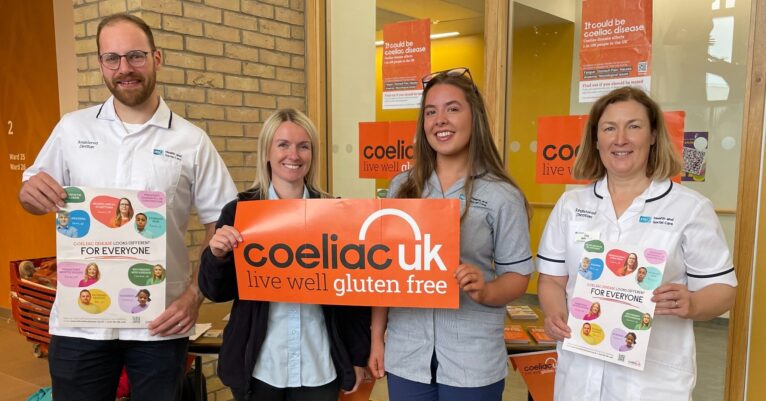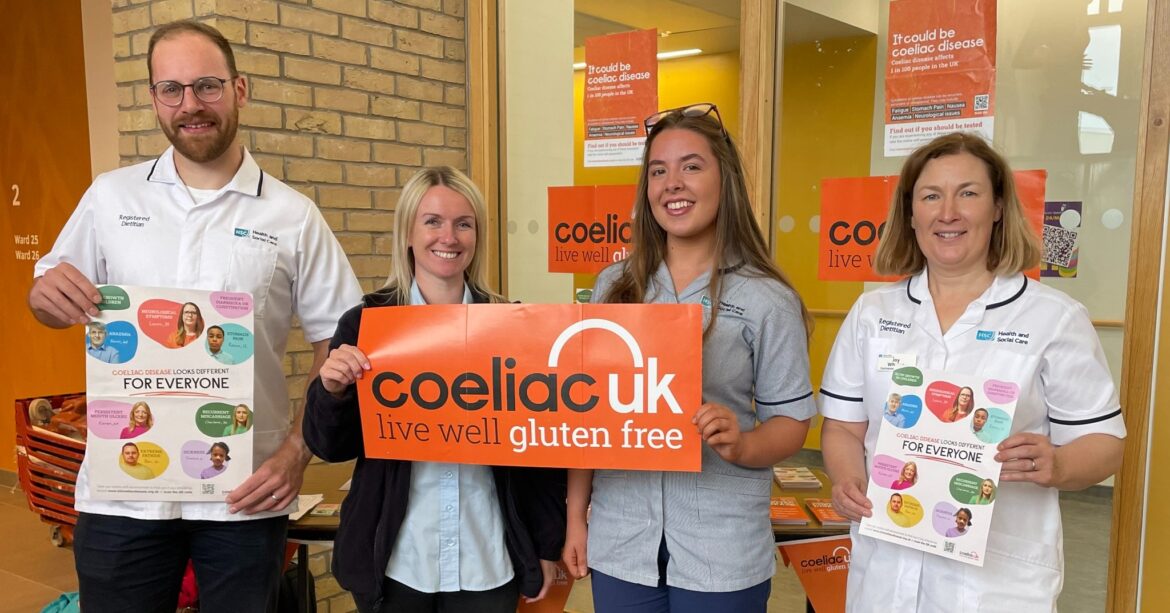 With only 52% of people with coeliac disease currently medically diagnosed in the North of Ireland, there are an estimated 10,001 people in across the country experiencing unexplained and often debilitating symptoms.
With only 52% of people with coeliac disease currently medically diagnosed in the North of Ireland, there are an estimated 10,001 people in across the country experiencing unexplained and often debilitating symptoms.
For this year’s Coeliac Awareness Month (1-31 May), Coeliac UK is urging the public to ask, “Is it coeliac disease?” and take the charity’s free online self-assessment to find out.
People can check if they are experiencing symptoms associated with coeliac disease and if they are recommended or should be considered for testing for the condition based on published clinical guidelines2.
Symptoms of coeliac disease can be recurrent, persistent or unexplained. They may include but are not limited to, fatigue, stomach pain, nausea, anaemia, and neurological issues.
Joy Whelan, Advanced Practice Gastroenterology Dietitian at the Western Trust explained: “Coeliac disease is a serious autoimmune condition where the body’s immune system attacks it’s own tissues when gluten, a protein found in wheat, barley and rye, is eaten.
“The treatment involves a strict lifelong gluten free diet.
“Myself and my colleagues aim to treat patients with a diagnosis of coeliac disease holistically ensuring that individual patient centred care is at the heart of the treatment and support for our patients.
“Figures provided by Coeliac UK report coeliac disease affects approximately 1 in every 100 people in the UK… but only an estimated 36% are diagnosed.
“However, the number of people diagnosed in Northern Ireland each year is increasing and this is a similar trend in the Western Trust and across the UK.
“We are very grateful for the support of our patients with coeliac disease including Laura who kindly provided her support to the Coeliac UK campaign again this year.
“It is important that we listen to our patients and their feedback helps us to improve our service and hopefully has a positive impact on the treatment and advice for people living with coeliac disease in the Western Trust area.”
Laura, 41 from Strabane, began experiencing alarming neurological symptoms including severe brain fog, confusion and exhaustion which caused major disruption to her life.
“I didn’t know the days of the week. I’d send my kids to school in the wrong clothes. I was really struggling and felt like a different person sometimes.”
Coeliac disease runs in Laura’s family, but she didn’t connect the dots.
A referral to a gastroenterologist after numerous visits to the GP confirmed the diagnosis and Laura was advised to start a strict gluten free diet.
“I was grumpy at first because I couldn’t eat what I wanted – it was both physically and emotionally challenging.
“But I was soon discovering gluten free foods I liked and felt like myself again. My energy returned, and with it, my confidence and joy were back.”
Joy added: “We were also delighted to welcome Dr Maura O’Neill, Director for Community and Older People’s Services to visit our information stand today at Altnagelvin Hospital and to help raise awareness of Coeliac Disease.
“Dr O’Neill is a qualified Dietitian and has a Doctorate in Nutrition and Biomedical Sciences and is currently the Trust’s Wellbeing Guardian with a keen interest in healthy eating and nutritional wellbeing.
“Thank you Maura for taking time out of your busy schedule to attend today and chat to our staff, patients and members of the public.
“We provide mainly virtual and telephone clinics for patients across the Western Trust area but can provide face to face appointments as well if patients prefer or need this.
“We have great support from our Consultant Gastroenterologists who provide advice and review of patients if required.
“Our service allows patients to get advice and support on their diet in addition to additional tests eg bone density scans if needed to ensure they are absorbing nutrients properly and an appropriate treatment plan is tailored to meet their needs.”
Hilary Croft, Coeliac UK CEO, said: “For those battling with unexplained symptoms, a coeliac disease diagnosis can be life changing.
“Our campaign aims to increase awareness of coeliac disease and we want to reach the estimated half a million people in the UK living with the symptoms of undiagnosed coeliac disease to help guide them on the road to recovery.
“At Coeliac UK, we’re here to help with advice and information for anyone who suspects they might have coeliac disease as well as those looking for ongoing support.”
The Coeliac Awareness Month campaign looks at raising awareness of coeliac disease by sharing real stories and empowering those affected by it to recognise symptoms, complete its online self-assessment, and take the first step on the road to recovery.
However, the Trust say it’s important not to remove gluten from the diet until tested, as this risks a potential false negative result.
Tags:





